
Qatar"s trade landscape: Oil exports and B2B marketplace growth. "
Qatar is a small country located on the northeastern coast of the Arabian Peninsula in Western Asia. It is bordered by Saudi Arabia to the south and the Persian Gulf to the north, east, and west. The country's geography plays a significant role in shaping its economy and culture. The official language of Qatar is Arabic. Arabic is widely spoken and is the primary means of communication in the country. It is the language of administration, education, and business. The majority of the population speaks Arabic as their first language. Qatar has a high-income economy, primarily driven by its vast reserves of natural gas and oil. The country is one of the world's leading exporters of liquefied natural gas (LNG) and petroleum products. Revenue from the oil and gas sector forms a substantial portion of the government's income and contributes significantly to Qatar's overall economic prosperity.
The climate of Qatar is desert, hot and dry, and the winters of this country have been declared cold. Sudanese air masses are seen in Qatar, and the rain is in torrential rain this season. Qatari summers are very hot and sunny, in general, April and May and autumn are the best time to visit Qatar. Gas reserves in Qatar are also estimated for the next 200 years, and it is clear that Qatar can have good productivity from the South Pars Gas Region.
The country has been able to extract a lot of natural gas in recent years, and this trend has led to Qatar's rapid economic growth. Estimates show that Qatar has grown by 20% economically. The people of Qatar speak Arabic, but English is the second most popular language in Qatar in universities and workplaces. The currency is the Rial.
The climate of Qatar is desert, hot and dry, and the winters of this country have been declared cold. Sudanese air masses are seen in Qatar, and the rain is in torrential rain this season. Qatari summers are very hot and sunny, in general, April and May and autumn are the best time to visit Qatar. Gas reserves in Qatar are also estimated for the next 200 years, and Qatar can make good use of the South Pars Gas Region. The country has been able to extract a lot of natural gas in recent years, and this trend has led to Qatar's rapid economic growth. Estimates show that Qatar has grown by 20% economically.
The discovery of oil since 1939 has been able to change the economy of Qatar and cause the average income of Qatar to increase and be included in the list of richest countries in the world. In this country, the policy of diversification of revenue sources reduced dependence on oil revenues from 93% to 83%. The formation of gross fixed capital in Qatar is about 78618.00 million Qatari Rials. As evidenced by the PPP per capita GDP in Qatar is estimated at 78618.00 US dollars. Do not forget to participate in sporting events in Qatar, the stadiums and sports infrastructure in Qatar are excellent and this has caused a lot of guests to enter this section.
Qataris consider football to be the most popular sport. ATP World Tours are held in Qatar every season and are very spectacular and special. In general, when traveling to Qatar, you can meet world tennis giants of Andy Nouri and Roger Federer. The people of Qatar speak Arabic, but English is the second most popular language in Qatar in universities and workplaces.
Qatar's strategic location on the Persian Gulf, with its rich oil and gas reserves, has been a crucial factor in the country's economic success. Its proximity to major energy markets has facilitated the export of oil and gas, providing a substantial source of income. The use of Arabic as the official language of Qatar is essential for conducting business in the country. Arabic fluency is often a requirement for employment, particularly in government, administration, and service sectors. The language connects the local population and facilitates communication within the business community, contributing to economic activities, including the oil and gas industry. Qatar's main income is heavily reliant on the oil and gas sector. The country has invested significantly in developing its energy infrastructure, including production facilities, pipelines, and export terminals. This economic dependence on hydrocarbon resources has shaped Qatar's economic policies, investment strategies, and international relations.
-

Qatar"s economy is significantly influenced by its sovereign wealth fund, the Qatar Investment Authority (QIA), which invests in diverse sectors globally. The country has established itself as a financial hub, particularly through the Qatar Financial Centre (QFC), attracting international businesses with favorable tax incentives. Despite a recent GDP growth rate of -2. 60%, Qatar"s per capita GDP stands at $112,531. 50, showcasing its economic strength. The nation is a leading player in the Islamic finance sector and heavily relies on its hydrocarbon resources, especially liquefied natural gas (LNG), contributing to global energy security. Economic diversification efforts are underway, focusing on finance, real estate, tourism, and technology to reduce dependence on hydrocarbons. Initiatives like Qatar National Vision 2030 aim to foster innovation and attract global investments.
Additionally, Qatar"s strategic location enhances its trade relationships worldwide, facilitating both exports and imports. The hosting of major international events like the 2022 FIFA World Cup further boosts tourism and commercial activities, solidifying Qatar"s position in the global market.
-
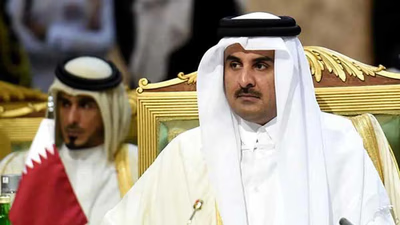
Qatar operates as an absolute monarchy, with power centralized in the Al Thani family. The Emir serves as the head of state and government, holding significant executive authority. The position is hereditary, ensuring continuity within the ruling family. The Advisory Council, or Shura Council, acts as a consultative body, providing recommendations to the Emir but lacking binding decision-making power. The Council of Ministers, also appointed by the Emir, manages daily government operations and policy implementation. Qatar"s political structure emphasizes the Emir"s legislative and executive powers, supported by these councils. The country maintains a legal framework based on Islamic law while allowing individual rights related to property and economic activities that align with public interest. Doha is the capital city and a hub for economic activity, particularly in oil and gas sectors.
Other cities like Al Rayyan and Al Khor contribute to Qatar"s diverse economy through their proximity to industrial areas and resources. Qatar"s governance includes various ministries overseeing essential sectors such as finance, foreign affairs, energy, education, and health. Municipal councils manage local governance issues across different municipalities, with members being both elected and appointed.
-
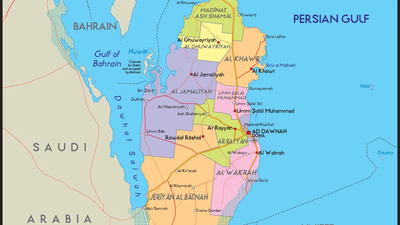
Qatar"s strategic location on the northeastern Arabian Peninsula significantly influences its economy and culture. The country, bordered by Saudi Arabia and the Persian Gulf, has a high-income economy primarily driven by its vast reserves of natural gas and oil. As one of the leading exporters of liquefied natural gas (LNG), Qatar"s oil and gas sector accounts for a substantial portion of government revenue, contributing to rapid economic growth estimated at 20%. The official language is Arabic, essential for business communication, while English is also widely spoken in educational and professional settings. Qatar"s climate is characterized as hot and dry desert, with optimal visiting times in April, May, and autumn. The discovery of oil in 1939 transformed Qatar into one of the richest countries globally, prompting diversification efforts that reduced dependence on oil revenues from 93% to 83%. Investments in energy infrastructure have further solidified its economic position. Additionally, Qatar"s sports infrastructure attracts international events, enhancing tourism and business networking opportunities.
Overall, Qatar"s unique geographical advantages combined with its rich natural resources create a dynamic trade environment. "
-
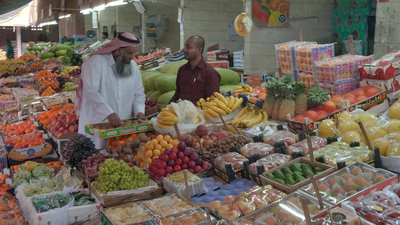
Qatar"s economy is thriving, primarily due to its abundant natural gas and oil reserves, leading to a high GDP per capita. The government is focused on diversifying the economy through the Qatar National Vision 2030, which opens avenues for exporters in finance, real estate, tourism, and technology. Strong trade relations and various bilateral agreements enhance market access for exporters. Qatar"s strategic location next to the Persian Gulf facilitates goods transit, while modern infrastructure supports trade activities. Despite political challenges with neighboring countries, Qatar maintains robust ties with Iran, which aids in import-export dynamics. The country heavily relies on imports for industrial goods due to a lack of local production capabilities. Key sectors for export opportunities include construction materials and services, especially with upcoming events like the FIFA World Cup 2022 driving demand. Free trade zones such as QFZA and QFC provide favorable conditions for businesses looking to enter the Qatari market.
-
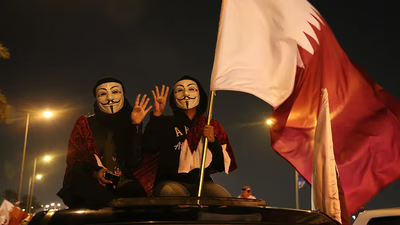
Qatar has made significant strides in various sectors, including legislation, crime reduction, and economic development. The country maintains a unique cultural blend due to its high immigration rate, with Islam playing a central role in societal norms. Dress codes are formal, especially in religious settings, and respect for local customs is paramount. The Qatari hijab has seen some relaxation over the years, yet traditional values remain strong. Education and transportation systems are advanced, contributing to the nation"s economic growth. Qatar"s government effectively manages inflation and food prices while ensuring high satisfaction among its citizens regarding welfare services. The hospitality of the Qatari people is notable, reflecting a calm society with strong emotional ties. As Qatar continues to develop its infrastructure and services, it remains essential for visitors to respect local customs and practices.
-
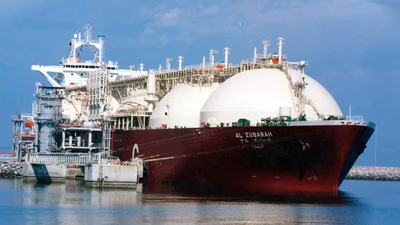
Qatar"s economy is one of the wealthiest globally, primarily due to its extensive natural gas reserves. The country is a leading producer and exporter of liquefied natural gas (LNG), which significantly contributes to its high GDP per capita and low unemployment rates. The oil and gas sector remains the backbone of Qatar"s economy, generating substantial government revenue. However, Qatar is actively pursuing economic diversification through initiatives like the Qatar National Vision 2030, aiming to reduce reliance on hydrocarbons by investing in finance, real estate, tourism, transportation, and technology. This diversification strategy has already shown positive results, with economic growth estimated at 20%. The upcoming 2022 World Cup is anticipated to further boost the economy. Despite challenges in agriculture due to saline soils and reliance on migrant labor for farming, sectors like fishing also contribute to the economy. Since discovering oil in 1939 and joining OPEC in 1961, Qatar has seen a significant increase in average income levels.
The government has established sovereign wealth funds like the Qatar Investment Authority (QIA) to manage surplus revenues from hydrocarbon sales effectively. These funds have made global investments across various sectors, supporting infrastructure development and social welfare programs.






